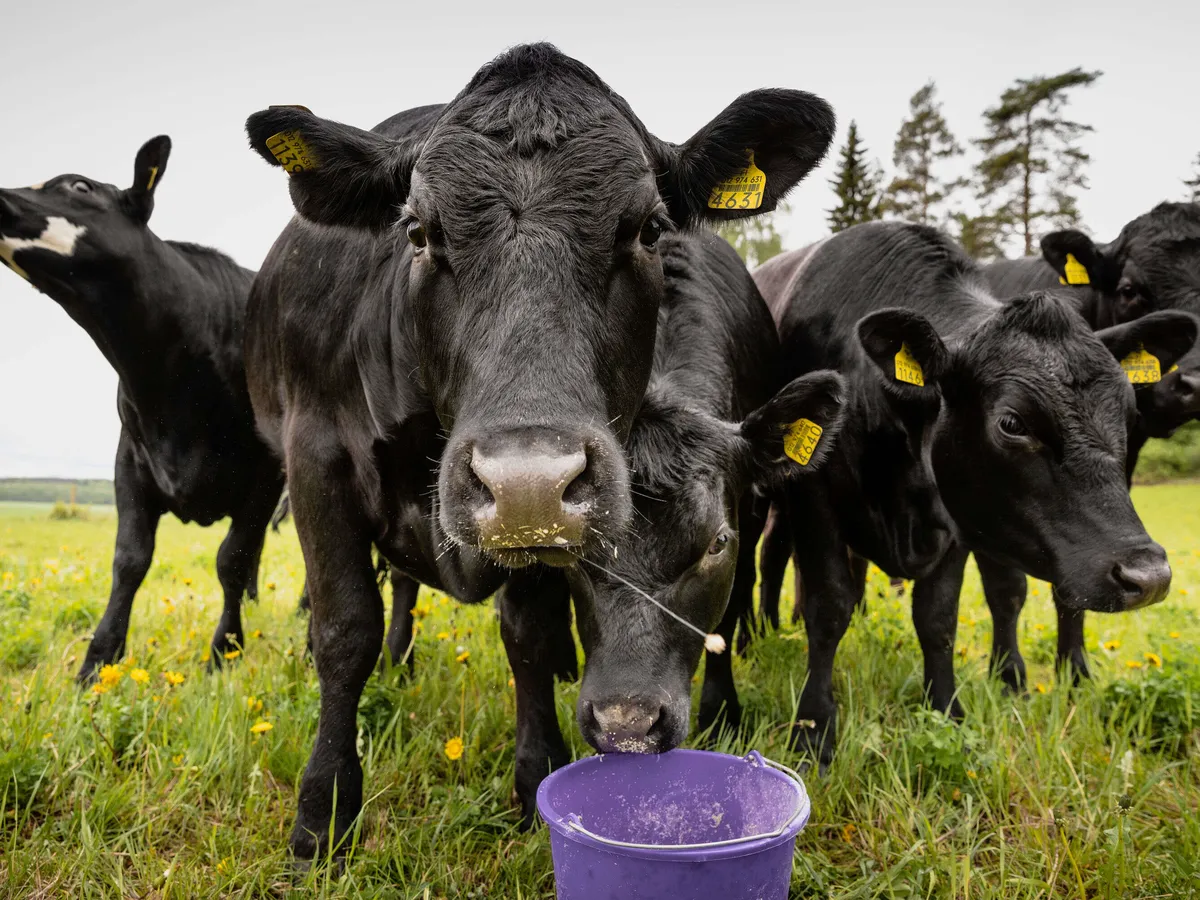Agriculture takes up a large part of the EU budget and has been one of the most difficult policy areas to reform. Now the pressure on agriculture is increasing.
Chairman of the EU climate panel Ottmar Edenhofer said on Monday The Financial Timesissathat the 90 percent emission reduction target proposed by the European Commission by 2040 is “almost impossible” to achieve without emission payments for agriculture.
According to Edenhofer, agricultural emissions have remained fairly stable over the past 15 years, while other sectors have had to reduce them. Edenhofer estimates that without a price signal, it is “very unlikely that we can reduce emissions”.
Emissions trading has become the main means of reducing Europe’s greenhouse emissions, but it has only covered industry and the energy sector and intra-European air traffic.
Since the beginning of this year, emissions trading has expanded to maritime transport and waste incineration. In a few years, emissions trading will also extend to road traffic and separate heating of buildings.
Efforts have been made to reduce the emissions of the agricultural sector by other means, although without great results. Agriculture’s share of the EU’s greenhouse emissions is about 12 percent. About two-thirds of that comes from the production of meat and dairy products.
A few years ago, the European Court of Auditors stated that despite the tens of billions of euros channeled into climate action, emissions from agriculture did not decrease much. The court pointed out that the EU’s agricultural policy does not aim to limit or reduce the number of livestock, even though a significant part of agricultural emissions come from livestock, and recommended that the Commission change the EU’s agricultural policy to reduce agricultural emissions.
“Emissions from the agricultural sector have been reduced, although without great results. However, the climate talks continue. Why would one sector have the right to be excluded from them?”
In Brussels, the pressure on agriculture is therefore increasing. However, reforming the EU’s agricultural policy is very difficult due to the strong agricultural lobby.
In the spring, the Commission backed away from stricter registrations related to agriculture in connection with the 2040 emission reduction targets, after tractor marches were organized in Brussels and across Europe.
However, there are other examples from Europe. Denmark has decided to put a carbon tax on agriculture, despite the fact that the country is a major exporter of pork and dairy products.
However, the financial plight of small European farmers is a real problem. However, the eyes should turn to the EU’s agricultural subsidies, of which about 80 percent goes to about 20 percent of agricultural producers, that is, in practice, to large companies. Agricultural policy is also facing major changes when the agricultural giant Ukraine someday joins the EU.
However, the climate talks continue. Why would one sector have the right to be excluded from them?

Plan de coupe
dessi nateur (@dessinateur) on Speaker Deck
HeyLink.me | Plan de coupe
Architecte lit.link(リットリンク)
plan maison · PubPub
public.tableau.com/app/profile/tony.tylor/vizzes
Idées3D : Plans de maison sur mesure pour chaque projet on Direct.me
Plans de maison complets et détaillés avec Idées3D — Bio Site
Architecte3D GIFs – Find & Share on GIPHY
Plan Maison (@planmaison_) — Knoji
Plans de maison sur mesure par Idées3D
Idées3D : Plans de maison pour une construction sereine (/architecte3d) · solo.to
Plan de masse
Plans de maison
architecte 3D (architecte3d) on Myspace
dessinateur3d Publisher Publications – Issuu
Just a moment…
immobilier's Profile – IMDb
immo-pratique | ReverbNation
Blogger: פרופיל משתמש: Prêt immobilier
immob's Profile – Wall | Know Your Meme
Prêt immobilier
immo bilier's TED Profile
Immobilier Pratique – Crunchbase Company Profile & Funding
Immobilier: investissement locatif on Strikingly
immo bilier – France | about.me
About immobiliers – Twitch
Prêt immobilier | Gravatar
Prêt immobilier | Linktree
Prêt immobilier